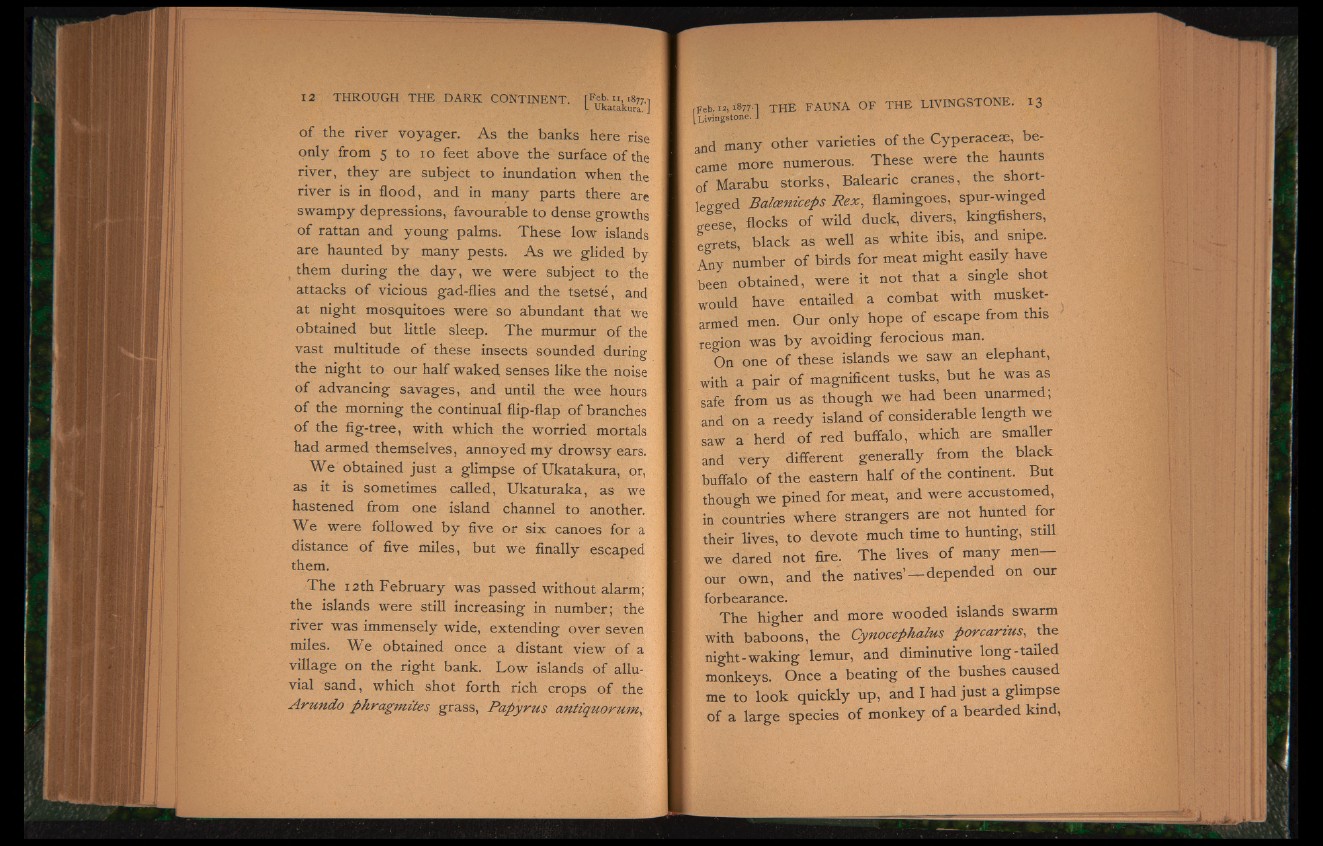
12 THROUGH THE DARK CONTINENT. rFeb-", 1877.1 L, Ukatakura. J
of the river voyager. As the banks here rise
only from 5 to 10 feet above the surface of the
river, they are subject to inundation when the
river is in flood, and in many parts there are
swampy depressions, favourable to dense growths
of rattan and young palms. These low islands
are haunted by many pests. As we glided by
them during the day, we were subject to the
attacks of vicious gad-flies and the tsetse, and
at night mosquitoes were so abundant that we
obtained but little sleep. The murmur of the
vast multitude of these insects sounded during
the night to our half waked senses like the noise
of advancing savages, and until the wee hours
of the morning the continual flip-flap of branches
of the fig-tree, with which the worried mortals
had armed themselves, annoyed my drowsy ears.
We obtained just a glimpse of Ukatakura, or,
as it is sometimes called, Ukaturaka, as we
hastened from one island channel to another.
We were followed by five or six canoes for a
distance of five miles, but we finally escaped
them.
The 12th February was passed without alarm;
the islands were still increasing in number; the
river was immensely wide, extending over seven
miles. We obtained once a distant view of a
village on the right bank. Low islands of alluvial
sand, which shot forth rich crops of the
Arundo phragmites grass, Papyrus anttquorum,
rFeb. 12,1877-1 THE FAUNA OF THE LIVINGSTONE. 1 3
[Livingstone. J
and many other varieties of the Cyperaceae, became
more numerous. These were the haunts
of Marabu storks, Balearic cranes, the shortlegged
Balceniceps Rex, flamingoes, spur-winged
geese, flocks of wild duck, divers, kingfishers,
egrets, black as well as white ibis, and snipe.
Any number of birds for meat might easily have
been obtained, were it not that a single shot
would have entailed a combat with musketarmed
men. Our only hope of escape from this
region was by avoiding ferocious man.
On one of these islands we saw an elephant,
with a pair of magnificent tusks, but he was as
safe from us as though we had been unarmed;
and on a reedy island of considerable length we
saw a herd of red buffalo, which are smaller
and very different generally from the black
buffalo of the eastern half of the continent. But
though we pined for meat, and were accustomed,
in countries where strangers are not hunted for
their lives, to devote much time to hunting, still
we dared not fire. The lives of many men—
our own, a n d t h e natives’— depended on our
forbearance.
The higher and more wooded islands swarm
with baboons, the Cynocephalus porcarius, the
night-waking lemur, and diminutive long-tailed
monkeys. Once a beating of the bushes caused
me to look quickly up, and I had just a glimpse
of a large species of monkey of a bearded kind,